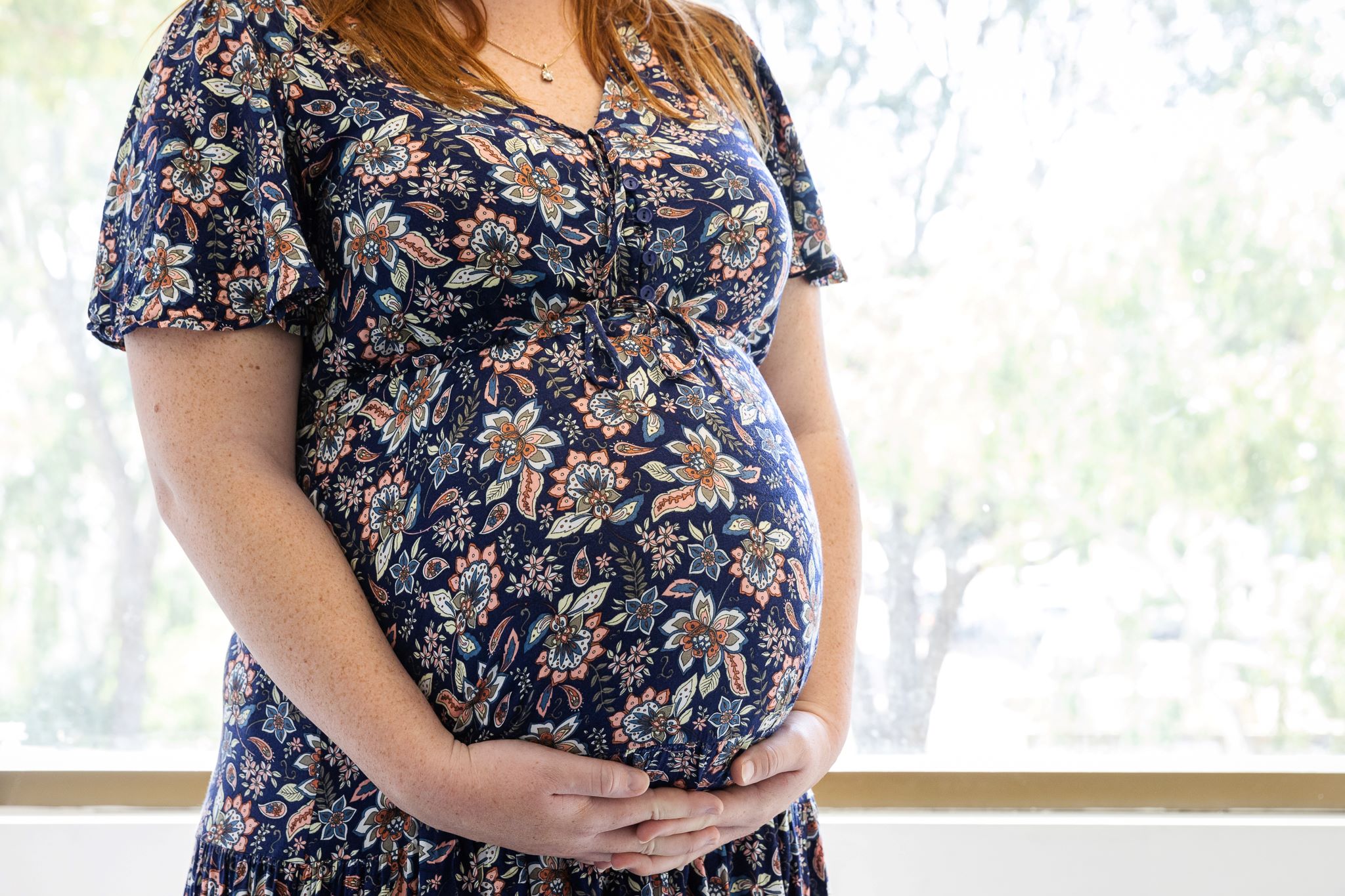Research shows up to 9% of women experience depression during pregnancy, with up to 16% experiencing postnatal depression.
There is considerable evidence that maternal psychological distress - that is, stress, anxiety and depression - during the perinatal period has detrimental effects on the mother and impacts on the enduring mother-infant relationship.
There is also an established link between stress and cortisol levels where high cortisol levels can impact on fetal development.
Preventing poor mental health during this period is an important public health concern, however, existing practice tends to give the most attention to wellbeing concerns in the postnatal period, rather than antenatal period - particular in regard to postnatal depression.
Consistent, reliable measures of psychological stress using biological markers could enable prevention and early intervention at the earliest possible timepoint. Traditionally, psychological distress is determined through clinical assessment, which is costly and frequently inaccessible, or through self-report questionnaires, dependent on an individual’s recall, accuracy and literacy levels.
The relationship between psychological stress and cortisol levels in pregnant women is also inconsistent, as it seems to depend on the type of cortisol sample. The analysis of hair cortisol concentrations (HCC) is a relatively new strategy to measure long-term cumulative cortisol levels. Using hair allows long-term stress to be understood, not simply acute cortisol measures.
The STORK Project will correlate cortisol levels in hair and metabolites of the tryptophan pathways in plasma with self-reported rates of psychological distress in pregnant women.
It is hypothesised that relatively high levels of psychological distress will associate with elevated cortisol levels and disruptions to tryptophan metabolic pathways (i.e. high cortisol, high inflammation, low serotonin); conversely individuals experiencing low levels of psychological distress will have opposing biomarker profiles.
The STORK Project will retrospectively analyse biomarkers in 200 women from the ORIGINS cohort, stratified between 100 women who score high on self-report psychological scales and 100 women who score low, to determine if there is a correlation between self-reported measures and biological markers.
The research team aims to:
- Retrospectively identify women in the ORIGINS cohort who scored high (n.100) / low (n.100) in self-report measures at two antenatal timepoints in standardised measures ie DASS-21 and Stressful Life Events scale.
- Assess hair cortisol levels of and associate with self-reported stress levels.
- Assess plasma levels of tryptophan pathway metabolites and associate with self-reported stress levels.
- Associate changes in biological markers with lifestyle impacts including reported sleep patterns.
The STORK Project is made possible through its collaboration with the Australian National Phenome Centre, the Fiona Wood Foundation and Perth Skeptics.
Investigators
- Dr Jackie Davis at The Kids Research Institute Australia
- Dr Nina D'Vaz at The Kids Research Institute Australia
- Professor Susan Prescott at the Nova Institute for Health
- Professor Fiona Wood at The University of Western Australia
- Professor Elain Holmes at the Australian National Phenome Centre
- Natasha Bear at Natasha Bear Statistics
- Luke Whiley at the Harry Perkins Institute of Medical Research
- Nicole Gray Wiley at the Harry Perkin Institute of Medical Research
- Amira Allaham, PhD Student at The University of Western Australia
- Dr Amy Finlay-Jones at The Kids Research Institute Australia
- Associate Professor Jeneva Ohan at The University of Western Australia

